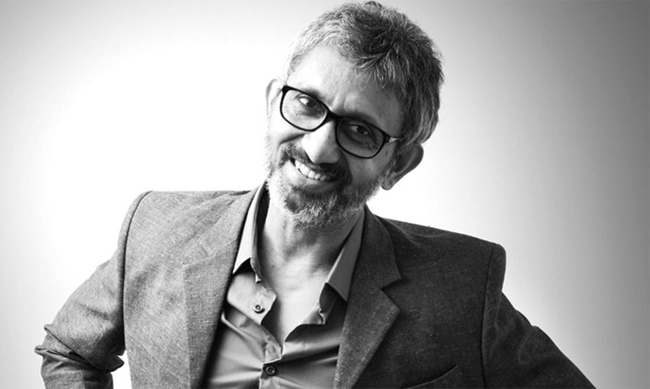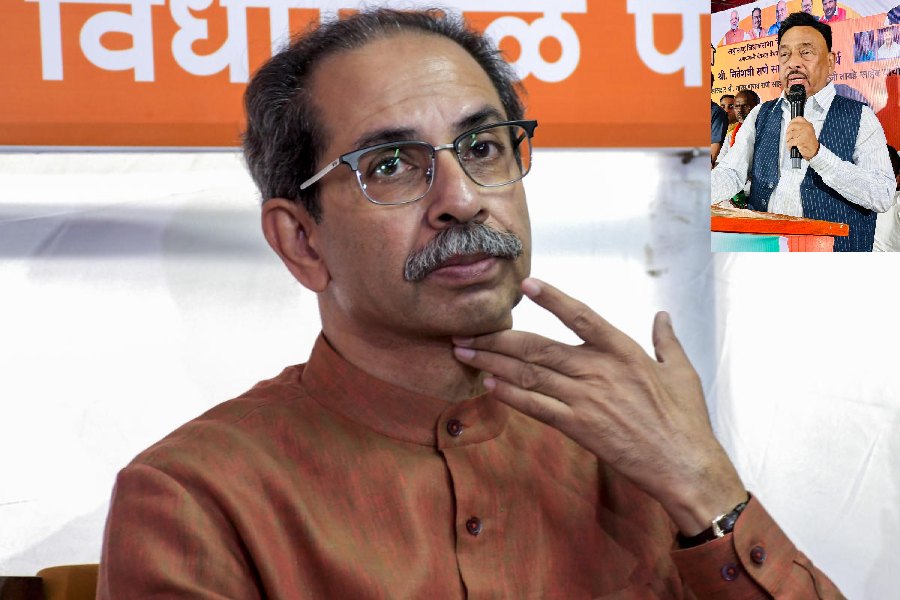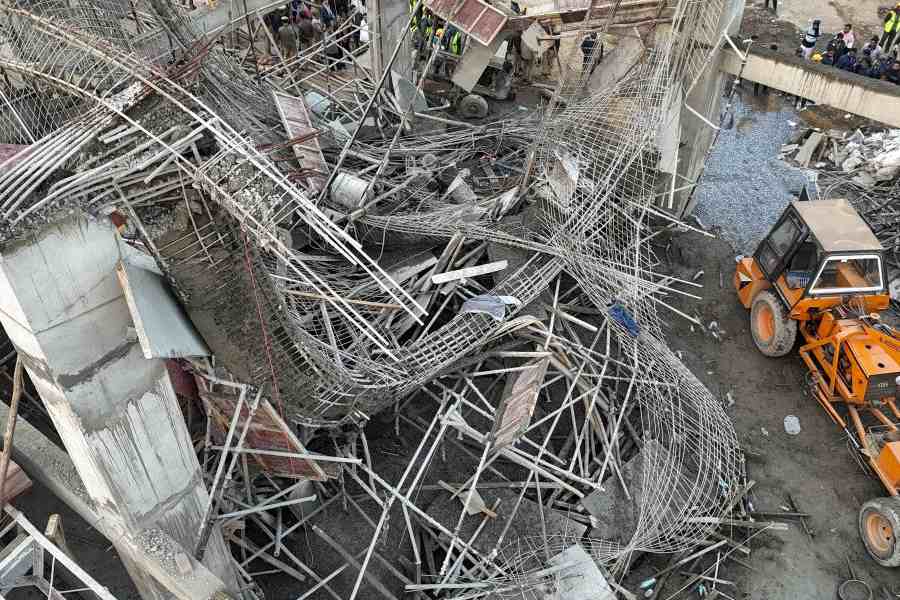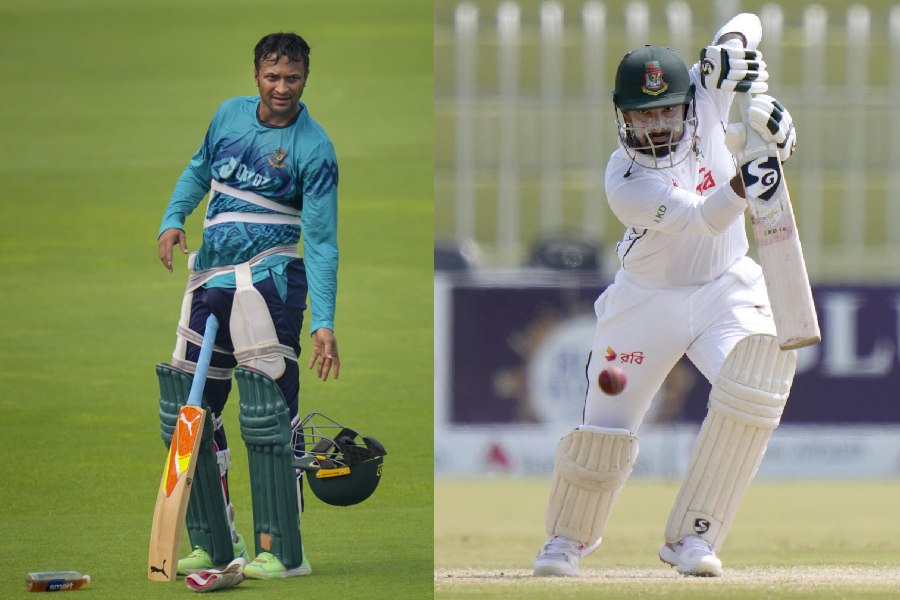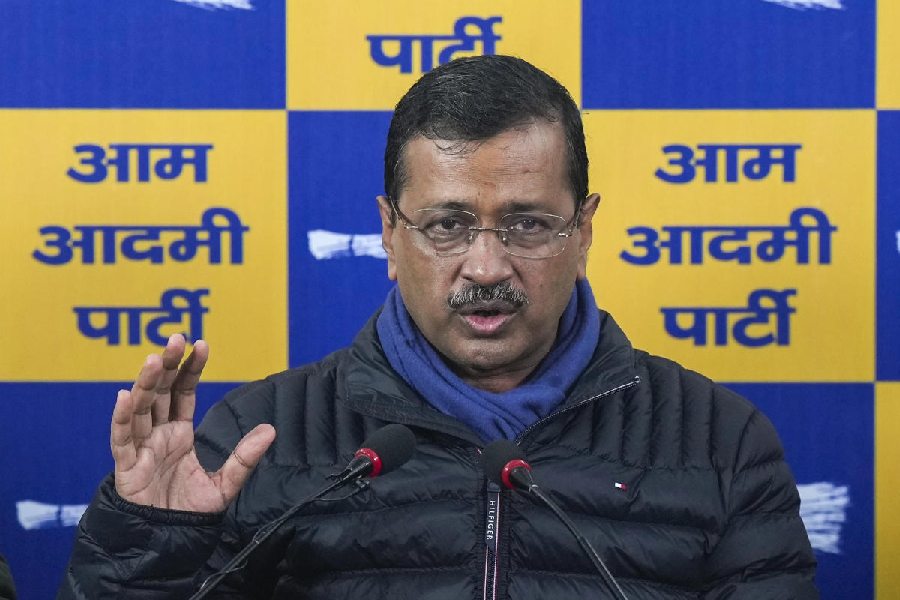Any role Neeraj Kabi touches turns into screen gold. Ever since his career-defining turn in the much-feted Ship of Theseus, the 52-year-old actor has left a mark in films like Detective Byomkesh Bakshy! and Talvar, even as he continues with his work in theatre and as an acting coach.
After making a successful foray into the web with Sacred Games, Neeraj will now be seen in the lead role of Sanjeev Mehra, a powerful journalist, in Paatal Lok. The Amazon Prime Video series, that drops today, also stars Jaideep Ahlawat, Gul Panag and Abhishek Banerjee and deals with crime and misdemeanour. The Telegraph chatted with Neeraj on being Sanjeev Mehra, his process and the way ahead.
Paatal Lok is one of the most awaited shows this season. What’s been the tenor of the feedback to the trailer and the character nuggets put out so far?
People are looking forward to the show. Some are even saying it’s looking as big and powerful as my other show, Sacred Games (in which Neeraj played the corrupt cop Parulkar). There’s been a constant barrage of calls and messages. Instead of just individual actors or characters, what’s heartening is that the series, as a whole, is gathering a lot of praise... from the way it has been created and mounted to how it’s been marketed.
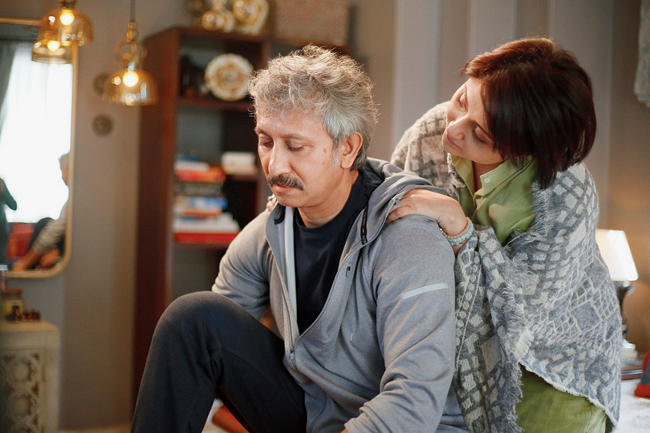
Neeraj Kabi with Swastika Mukherjee in Paatal Lok Still from the show
Every character you’ve played, whatever the medium, you manage to make it your own. What is it about Sanjeev Mehra, who seems upright yet flawed, that made you want to play him?
I like characters that are complex. I don’t like people who are simple to play and are either black or white. Fortunately, the characters I have been offered till date are very interesting, very nuanced and very complex. Such parts coming my way increased after (Detective) Byomkesh Bakshy! (the 2015 Dibakar Banerjee film in which Neeraj played Anukul Guha/ Yang Guang).
Sanjeev Mehra is very complex. He has a separate professional life, a different personal life and both these aspects to him are constantly at loggerheads. He begins his journey in Paatal Lok as a loser... he’s disillusioned, he has no faith in what he’s doing anymore…. He was, once upon a time, a poster boy in the world of journalism and he comes from a background that spoke about integrity and honesty. He pioneered many things and he was a huge hero.
I liked these complexities and nuances in him and I felt that there was so much room to interpret this character in multiple ways. Certain characters you can’t interpret... they are just there and you can’t create much out of them. But here, I had scope to interpret and reinterpret him.
He rises to be a great hero again, but there are so many human elements to him as well. He rises in his profession once again, but he loses out on his personal integrity. Also, some qualities of a soft human exist inside this man. His interactions with so many people make him even more layered... whether it’s with the public at large, his wife (Dolly, played by Swastika Mukherjee), with Hathiram (a cop, played by Jaideep Ahlawat), with his friends, with his love interest....
It must have been quite a challenge to play a man who is so layered...
It was very positively challenging, I must say. I have played nuanced characters like this before... whether it was Gandhi (in both Samvidhaan and Viceroy’s House), the monk in Ship of Theseus.... Playing Sanjeev Mehra was a challenge I enjoyed... I didn’t question myself as to whether I would be able to do it or not... I told myself, ‘Wow, this is so interesting and challenging, let me find multiple ways of doing this and make him even more complex in the eyes of the audience’. That’s what being an actor is all about... you have to make the audience empathise with your character. Empathy is much bigger than sympathy. When the character is empathised with, that means you have succeeded as an actor. So even if it’s a villain, the audiences don’t hate you... they understand why you have turned into a villain. I am hoping I have been able to play Sanjeev Mehra like that.
You are a child of theatre who has worked in films, with a large part of your stellar work in the last few years being seen on the web. How do you view the medium?
Very interesting, very creative. Everybody has ample scope and space to showcase their skills and talents. Not that it didn’t happen in films, but because the web medium is such a large space, there are thousands of projects happening at the same time. The writers have simply exploded. I keep wondering where were these people all these years (laughs). ‘Yeh toh hamare desh ke hi log hain... ab tak kahaan thhe yeh log?’ Itne kaabil writers, itne achhe performers aur directors... kamaal ke log....
To be honest, making films is so expensive and their shelf life is limited. On the web, content remains... you can watch it after five, eight, 10 years.... There’s a huge audience and content on the web is accessible at the click of a phone. On the other hand, watching a film demands planning, getting ready, driving through the traffic, buying a ticket... it’s a huge commitment for the audience.
Having said that, over the last few years, even cinema has changed a lot... such amazing stories, great creative work, bold themes that are personal and deep, having a finger on the pulse of the audience.... I think the web has influenced cinema and vice-versa. Also, the audiences have changed. When you create a theatre production, then you have to understand that the audience that’s coming to watch you is also now watching web series and cinema. But nothing can take over anything. Everything will exist with its own identity, whether it’s web, cinema or theatre. They will have their good times and their bad times, of course, and I feel that the web is having its best time now.
Do you look for yourself in the people that you play?
I only like playing people who are completely different from me. I try to mould myself into that character. Neeraj steps out very slowly and gradually... I should not be visible to the audience at all. Having said that, there is nothing to a character unless it borrows from the actor. The character itself is just a graphic image... the actor has to give it flesh and yet he has to step out, because it’s not about him. And that’s the beautiful process of being an actor.
You may not be that character personally — in my life, I am shy and private — but when I am performing, taking theatre workshops or I am out there as an actor, then I am a very, very different person. I need to understand the world and motivations of the character and in that process, you understand so much about yourself.
Like a chef should be able to cook every kind of cuisine, an actor has to be able to play all kinds of people. A chef uses food, we use our own body. But then, you can’t take back the emotions and the drawbacks of the man you are playing to your family back home. Once you play a part or have a method of acting that envelopes you completely, then you find it difficult to segregate the different aspects of your life.
You’ve always played intense characters, but apparently you want to try your hand at comedy now...
I am waiting for a good project where I get to explore my comic side. I have done it on stage, but not in cinema or the web. I have done all other navrasas, but not hasya... and I am waiting. I was waiting for shringara, which is romance, and that happened with Once Again (co-starring Shefali Shah and streaming on Netflix). I am happy that past the age of 50, I am being considered for romantic roles.
I just don’t want to do any comedy, because if you don’t get it right, then you can make a mess of it. I would love to do a comedy with Nawaz (Nawazuddin Siddiqui). We have worked together in Sacred Games and Nawaz has a huge sense of comedy. He’s a very intelligent comic actor, and I would love to do a comic role with him.
What’s the way forward for you as an actor in the next few years?
Ever since Ship of Theseus, I have been conscious of what I am doing and the projects I take up. That’s simply because I have arrived very late... or rather, I have been given work very late (laughs). I got my first work from the industry when I was about 42 or 44. So if the industry has offered me work so late, then it will take me some time to get to where I want to be.
So since I started late, I don’t want to do anything from scratch... it should be at a level that a 50-year-old should be performing at. Which is why I had to work very hard and very fast over the last 10 years to establish myself very quickly. When I came in in 2012, if I had taken it easy and done small projects, I wouldn’t have reached anywhere by now. These had to be conscious decisions, with a lot of hard work put in. I have always worked with the idea that by the time I cross 50, I should be on a par, craft-wise and work-wise, with the other good 50-year-old actors in this country. I think I have been able to touch some part of it... and I am happy about that. There is a blueprint for the road ahead, but it’s a very personal journey. Once I get there, I will call you and tell you, ‘Yes, I have reached there’ (laughs).

